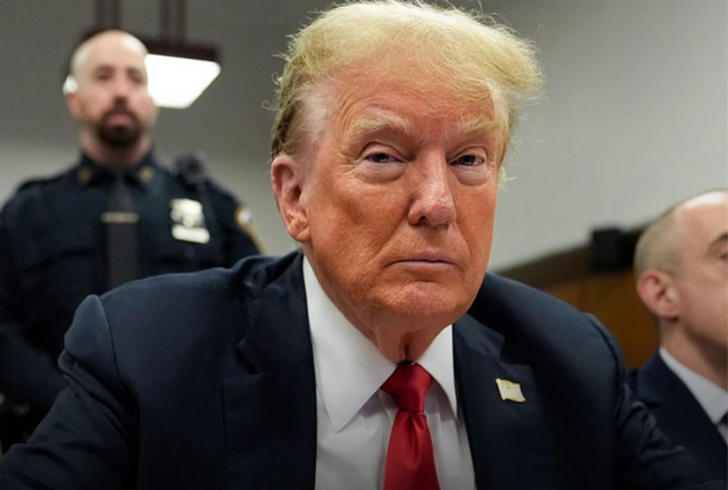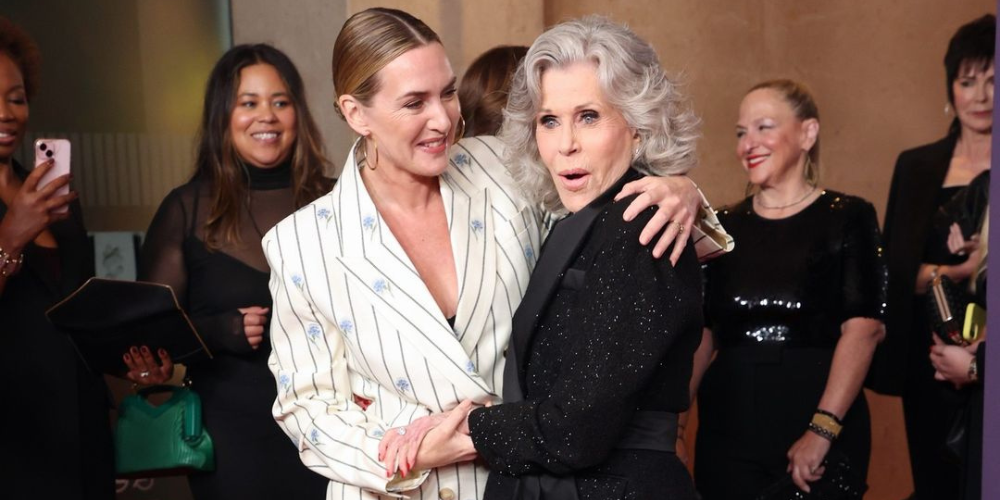A New York judge has dealt a devastating blow to Donald Trump's financial empire and billionaire image. In a sweeping civil fraud verdict, Trump was ordered to pay a staggering $355 million in penalties for years of lying about his wealth. This historic ruling in the "trump new york lawsuit" pierces the former president's carefully cultivated persona as a master businessman, thrusting his real estate empire into a state of uncertainty.
The ruling, handed down by Judge Arthur Engoron on Friday, is a resounding victory for New York Attorney General Letitia James, who has relentlessly pursued the case against Trump and his company. It serves as a harsh reminder that even the most powerful figures are not above the law, and that actions have consequences – no matter one's wealth or status.
Inflating Net Worth for Personal Gain

Instagram | erictrump | The lawsuit alleges that Trump and his two eldest sons, Donald Jr. and Eric, schemed to inflate the former president's net worth for years
At the crux of this lawsuit lies the accusation that Trump, his company, and his two eldest sons, Donald Jr. and Eric, engaged in a brazen scheme to inflate the former president's net worth for years. The alleged motive? To dupe banks, insurers, and others into more favorable financial arrangements by presenting an exaggerated picture of Trump's wealth on his financial statements.
- The Inflated Assets: Trump's penthouse at Trump Tower was claimed to be nearly three times its actual size, while his Mar-a-Lago estate in Florida was overvalued based on the notion that it could be developed for residential use – despite Trump having surrendered those rights.
- The Consequences: By artificially boosting his net worth, Trump secured lower loan interest rates and profited from the sale of properties he might not have been able to develop without that financing.
A Scathing Rebuke
In his scathing 92-page opinion, Judge Engoron left no room for doubt or excuses. He branded Trump and his co-defendants as "incapable of admitting the error of their ways," their "lack of contrition and remorse borders on pathological," and the "frauds found here leap off the page and shock the conscience."
The judge's words cut deep, characterizing the Trump Organization as an entity "likely to continue their fraudulent ways" without the imposed penalties and controls. Engoron dismissed any notion of this being a mere "venial sin," stating that while Trump may not be "Bernard Madoff," his actions were far from innocent.
Dissecting the Penalties

Instagram | katiekatro6abc | On top of the $355 million penalties, Trump must pay interest, potentially exceeding $450 million in total.
The penalties handed down in this trump new york lawsuit are multi-faceted, delivering a blow to both Trump's personal finances and his ability to lead his business empire:
- Financial Penalties - In addition to the $355 million in direct penalties, Trump is required to pay interest, potentially pushing the total amount owed to over $450 million. This sum represents what the judge deemed "ill-gotten gains" from Trump's deceptive practices.
- Leadership Restrictions -Trump faces a three-year ban from serving as an officer or director of any New York company, while his sons Eric and Donald Jr. face two-year bans. This effectively requires the Trump Organization to find new leadership, at least temporarily.
- Oversight and Monitoring - The Trump Organization will be placed under the supervision of an independent monitor for at least three years, ensuring compliance with financial reporting obligations and rules. Additionally, the company must hire an independent compliance director to oversee its activities.
Trump's Defiant Stance and the Road Ahead
True to form, Trump has vehemently denied any wrongdoing and vowed to appeal the decision, dismissing it as "election interference" and "weaponization against a political opponent." However, the weight of Judge Engoron's ruling and the substantial penalties imposed suggest a long and arduous legal battle lies ahead.
As the trump new york lawsuit saga continues to unfold, its implications extend far beyond the courtroom. It could significantly impact Trump's financial resources and his identity as a shrewd businessman, potentially hindering his bid for a return to the White House in 2024.
A Resounding Message

Instagram | newyorkstateag | Letitia James Trump faces accountability for lying, cheating, and fraud.
While the full ramifications of this lawsuit verdict have yet to be realized, one message rings clear: no one, regardless of wealth, fame, or political stature, is above the law. Attorney General Letitia James aptly summed it up, stating, "Now, Donald Trump is finally facing accountability for his lying, cheating, and staggering fraud. Because no matter how big, rich or powerful you think you are, no one is above the law."
This resounding victory for James and her team sets a precedent, serving as a warning to those who might consider engaging in similar practices. It reinforces the notion that the pursuit of justice is unwavering, even in the face of immense power and influence.
As the legal battles continue to unfold, the trump new york lawsuit stands as a testament to the resilience of the judicial system and its commitment to upholding the principles of fairness and accountability – principles that transcend wealth, status, and political affiliation.








